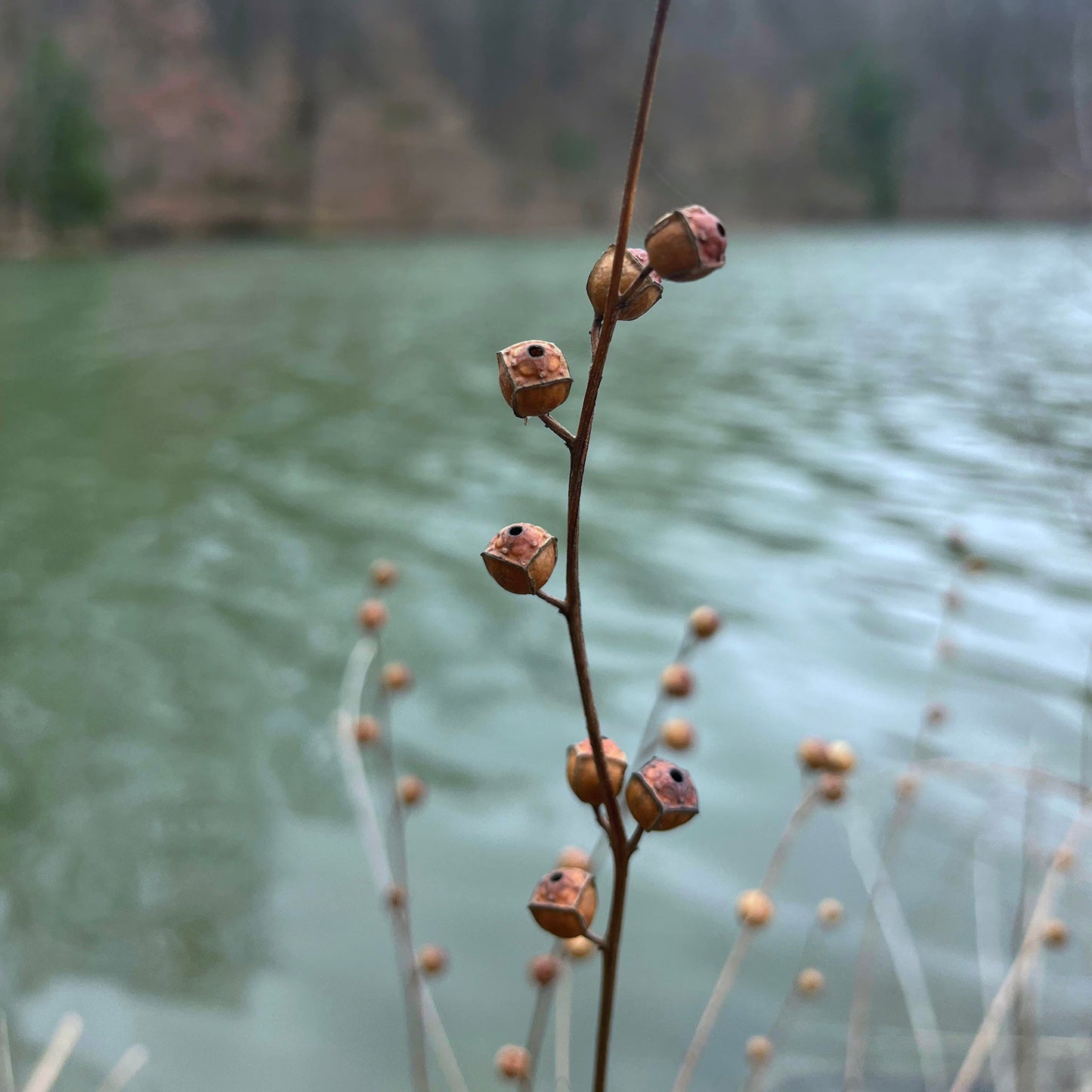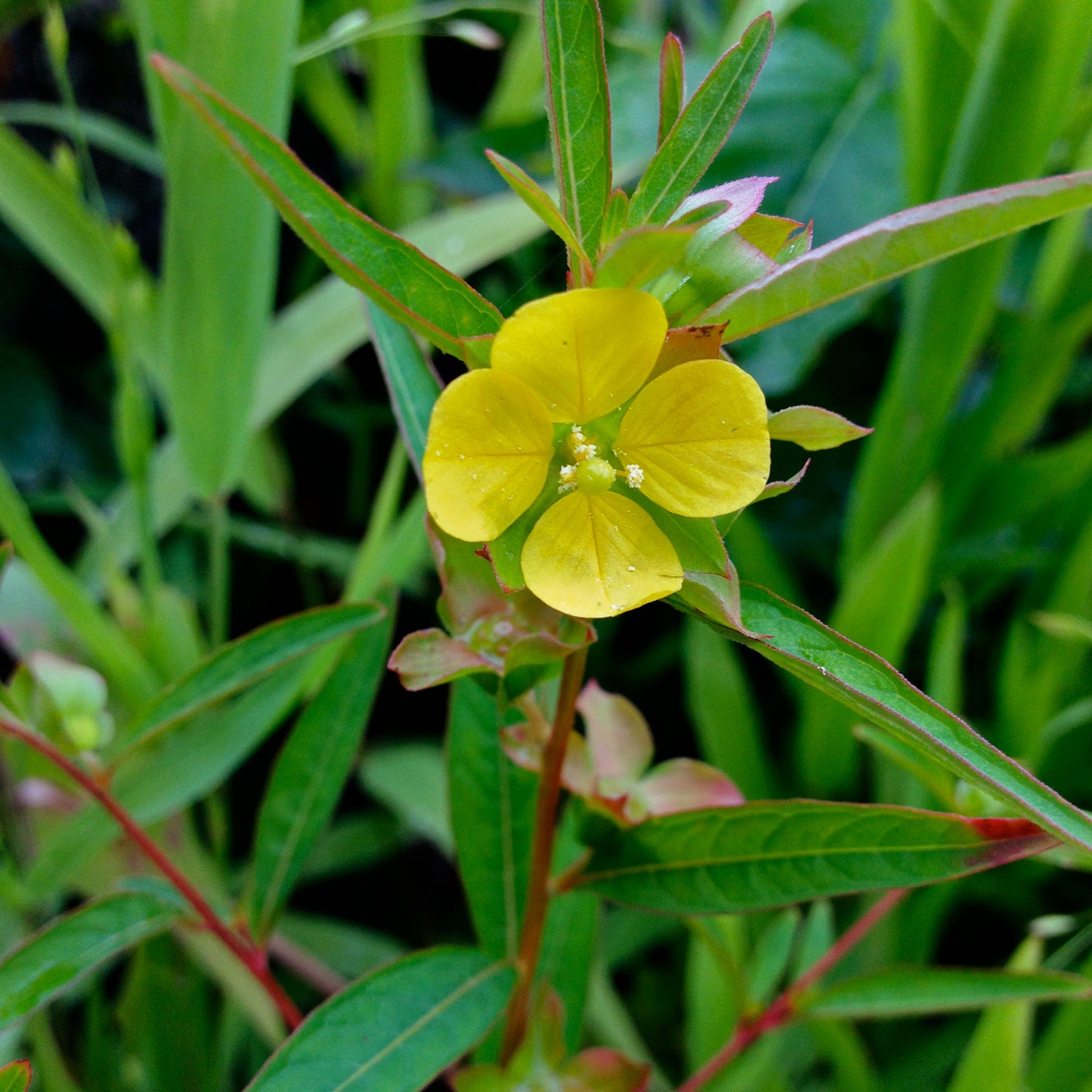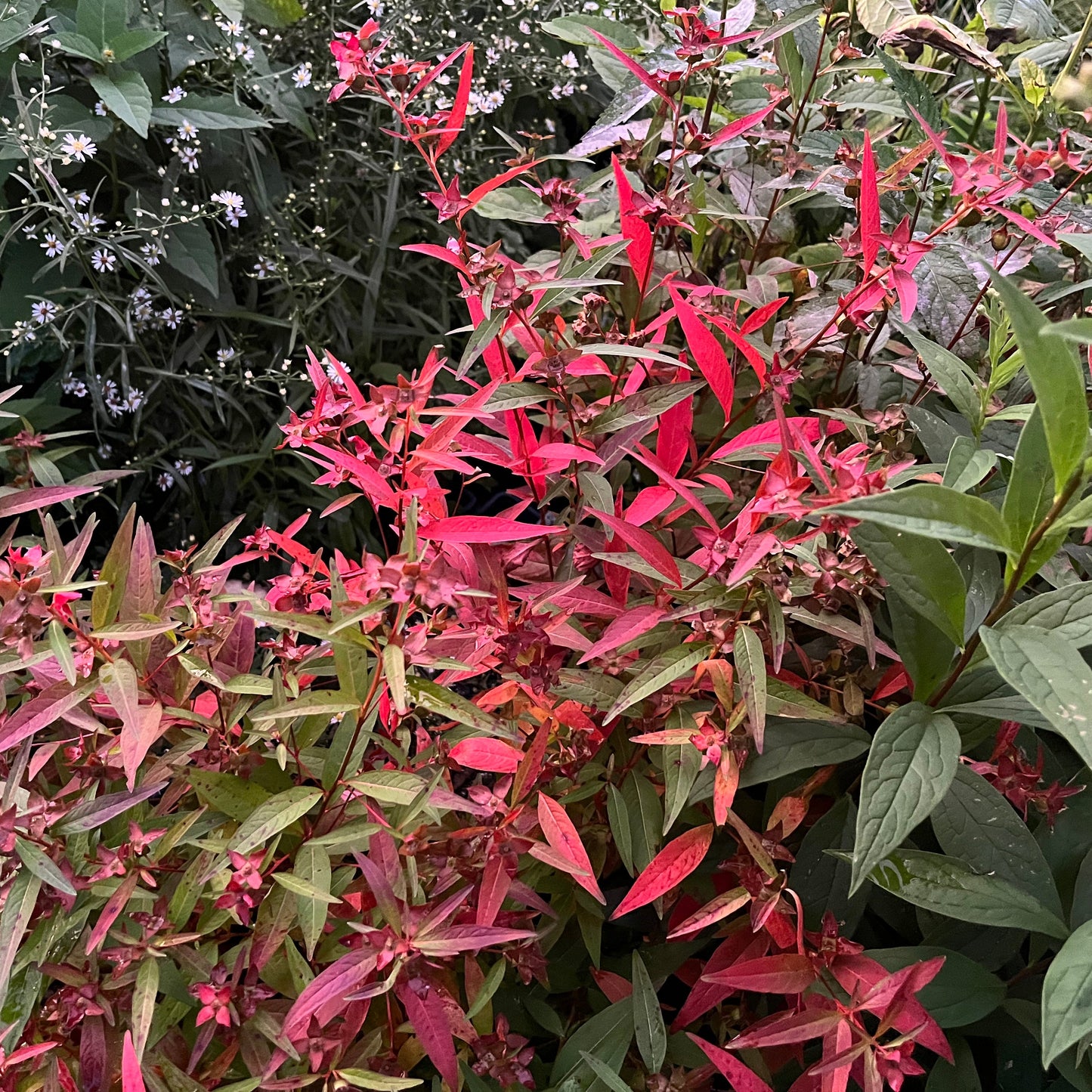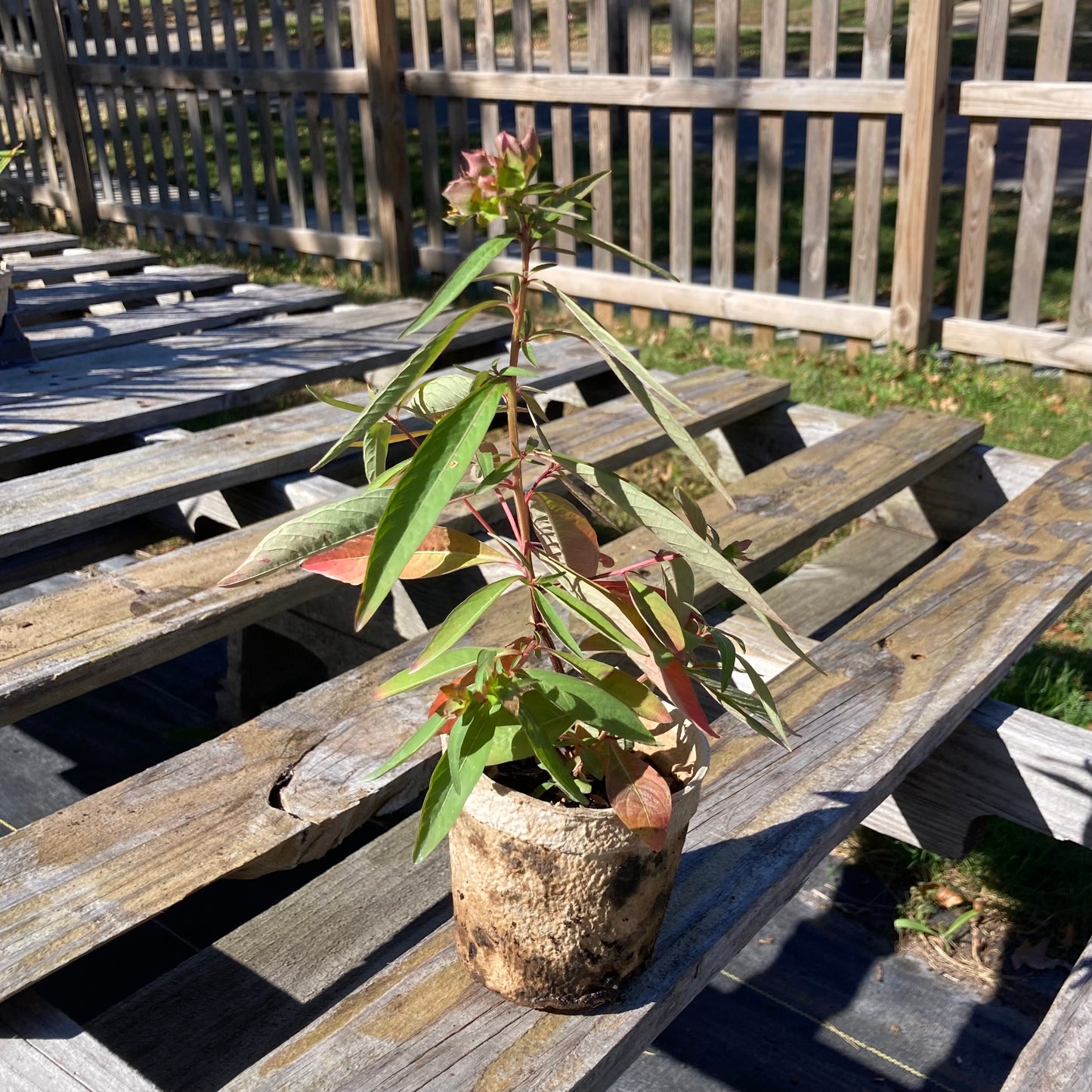Seedbox
Ludwigia alternifolia
Ludwigia alternifolia
83 remaining
Couldn't load pickup availability
Sun/shade: Full sun
Soil moisture: Medium to wet
Height: 2-3'
Flowering period: July
Deer resistance: Medium
Perhaps no other plant offers its gifts to the world more politely than seedbox, which at fruiting time presents its seeds neatly packaged in a little box. In truth, seedbox’s offerings begin much earlier in the growing season, when it adorns its upper branches with delicate yellow flowers that are a pollen and nectar source to bumblebees, carpenter bees, halictid bees, and leafcutter bees. Once pollination occurs and the cube-like fruit begins to develop, it is sometimes fed upon by seed beetle larvae, which form a cocoon inside the cube. In the fall, foraging white footed mice scale the branches of seedbox, selectively removing and consuming the fruits that contain beetle larvae. During the winter, white-throated sparrows similarly may open the fruits in order to consume the larvae. With regards to aesthetic appeal, seedbox provides deep red fall foliage in addition to attractive flowers and fruit.
Small and shrubby in stature, seedbox grows to 1-3 feet in height, branches frequently in its upper portion, and often has multiple stems growing from its base. The plant prefers growing in wet to moderately wet soil under full sun, and within its native NE Ohio range, inhabits places such as wet meadows and the margins of ponds and streams. An unassuming, charming plant, seedbox is a great choice for adding some personality and wildlife value to a low, wet spot in the yard. The gardener should take note, though, that seedbox is sometimes a target of deer herbivory.
Photo 1 by Julie Slater. Photo 2 © Fritz Flohr Reynolds, CC BY-SA 2.0. Photo 3 by Alyssa Zearley.







